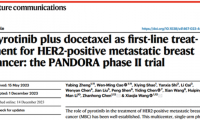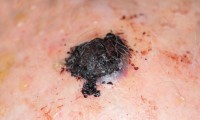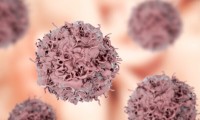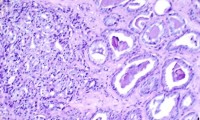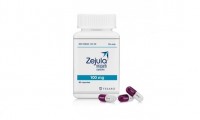-
AI Accurately Predicts Cancer Outcomes from Tissue Samples
- Source: drugdu
- 133
- December 29, 2023
-
Amgen’s request for full approval of Lumakras in lung cancer denied by FDA
- Source: drugdu
- 127
- December 29, 2023
-
Bayer wins latest Roundup cancer trial, ending losing streak
- Source: drugdu
- 130
- December 28, 2023
-
Hengrui’s Innovative Drug Pyrotinib Combined Therapy for HER2-Positive Metastatic Breast Cancer Featured in the Sub-journal of ‘Nature’
- Source: drugdu
- 109
- December 28, 2023
-
Moderna and Merck’s Novel Cancer Vaccine, Keytruda Combo Cuts Risk of Skin Cancer Death, Recurrence by Half
- Source: drugdu
- 209
- December 27, 2023
-
GSK’s Jemperli Plus Zejula Produces Significant Survival Improvement in Endometrial Cancer
- Source: drugdu
- 198
- December 26, 2023
-
GSK Expands Again in Cancer, Paying Hansoh $185M for Another ADC
- Source: drugdu
- 202
- December 22, 2023
-
Illumina’s Antitrust Battles to End With Divestiture of Cancer Test Maker Grail
- Source: drugdu
- 96
- December 20, 2023
-
Point Bio Prostate Cancer Therapy Meets Phase 3 Goal, But Results Still Disappoint
- Source: drugdu
- 92
- December 20, 2023
-
GSK tees up AstraZeneca rivalry with positive Jemperli-Zejula readout in endometrial cancer
- Source: drugdu
- 191
- December 20, 2023
your submission has already been received.
OK
Subscribe
Please enter a valid Email address!
Submit
The most relevant industry news & insight will be sent to you every two weeks.




